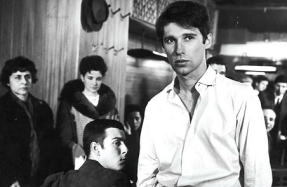The Oral Cinema of Sergio Citti

“Film critics are like condoms talking about the pleasures of the orgasm.”
—Sergio Citti
While radically democratic when it comes to spectatorship, cinema does not tolerate illiteracy on the part of its makers. Unlike storytelling, which can be both written and oral, films, in order to be made, require a modicum of technological proficiency. Whether through schooling or apprenticeship, the craft of filmmaking has historically not been as widely accessible as other forms of cultural production. The classist dimension of the film industry depends also on its technological apparatus, which, until very recently, remained beyond the reach of most pockets. Few and far between are members of the working classes that found their way behind a camera (Claude Faraldo, Jean-Claude Brisseau, who else?). Without resorting to the fetishistic idealization of proletarian attributes, it is safe to assume that economic Darwinism has impacted the history of cinema to an ineluctable extent. Though often devoted, however opportunistically, to the romantic tribulations of poverty, cinema has rarely conveyed a non-bourgeois viewpoint.
Sergio Citti is one of the very few exceptions to this rule. from him.” Proof of this can be found in Citti’s cinema, which is only choreographically similar to Pasolini’s films. Aside from the social setting, their films can hardly be compared, and this speaks of a dialogical, horizontal relation in which both learned from each other.
You’re reading a preview, subscribe to read more.
Start your free 30 days





